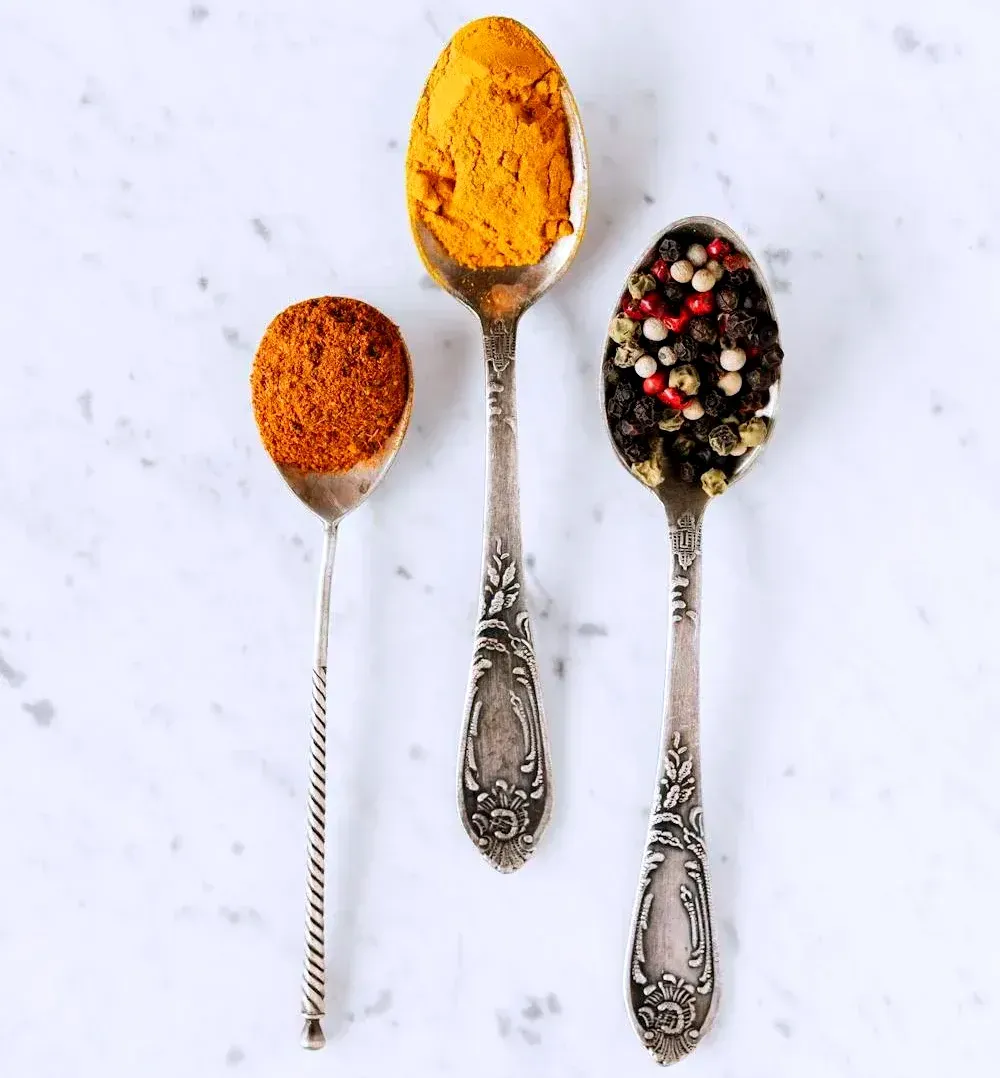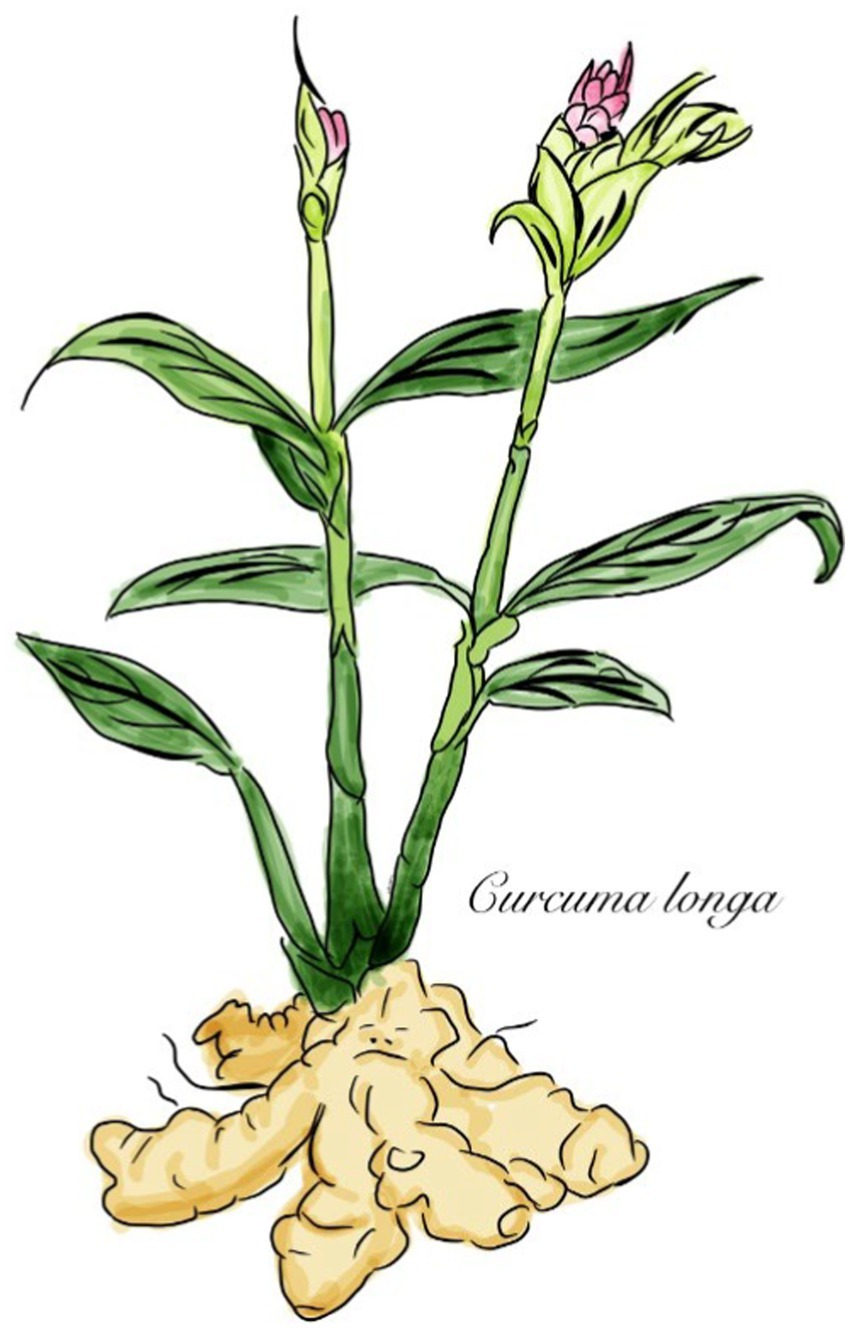Turmeric: The Golden Spice That Supercharges Your Joint
Discover how turmeric, the golden spice in your kitchen, can naturally ease joint pain, fight inflammation, and boost your health! Learn how this powerful ingredient can transform your wellness routine and support your joints—without the side effects of traditional painkillers.
If you’ve ever added a splash of golden-yellow turmeric to your curry, you’ve already experienced one of nature’s most vibrant and healing spices. But did you know that turmeric is more than just a flavor enhancer? It’s been a staple in traditional medicine for thousands of years, and modern science is now catching up to its health benefits. The magic ingredient in turmeric is curcumin, a compound that’s packed with healing properties. Let's dive into how turmeric can transform your health, particularly when it comes to soothing those achy, inflamed joints, and how you can incorporate it into your daily life for maximum benefits.

What Makes Turmeric So Special?
Turmeric comes from a plant called Curcuma longa, native to India and a key player in traditional medicine systems like Ayurveda and Chinese medicine for thousands of years. But what really makes turmeric stand out is curcumin, the active compound responsible for its healing properties. This bright yellow substance doesn’t just make curry delicious—it’s also a natural anti-inflammatory powerhouse with the ability to reduce joint pain, fight inflammation, and provide a range of other health benefits.
The Power of Curcumin: The Active Ingredient in Turmeric
Curcumin is the star of the show when it comes to turmeric’s health benefits. Although it’s been used for centuries in traditional medicine, modern research has uncovered just how much this golden compound can do. From soothing aching joints to supporting overall health, curcumin is a natural remedy that may help you live a more comfortable life—especially if you're dealing with joint pain.
But here’s the catch: curcumin isn’t easily absorbed into the bloodstream, which means you might not get the full benefits just by sprinkling turmeric on your food. That’s why many supplements come with added black pepper extract (piperine), which helps improve curcumin absorption and maximize its effects. Once your body can fully absorb it, the magic begins.
How Curcumin Helps With Joint Pain and Inflammation
Turmeric as a Natural Anti-Inflammatory
Joint pain is often caused by inflammation, whether from arthritis, injury, or other conditions. Chronic inflammation can lead to swelling, stiffness, and discomfort that affect your quality of life. Curcumin, found in turmeric, is a natural anti-inflammatory that works by blocking specific molecules that cause inflammation in the body.
For people with joint pain, such as those with arthritis, turmeric can provide much-needed relief. Research has shown that curcumin is effective in reducing inflammation in the joints, easing pain, and improving overall joint function. The best part? It's a natural alternative to over-the-counter medications that may have side effects.
Imagine you're dealing with arthritis pain. You wake up feeling stiff and sore, especially in your knees or hands. After adding turmeric to your daily routine, you begin to notice a reduction in swelling and discomfort. It’s not an overnight miracle, but over time, your joints feel more flexible and less achy, allowing you to move more freely. That’s the anti-inflammatory power of turmeric at work.
Relieving Pain Naturally: A Better Alternative to Over-the-Counter Medications
Many people with chronic joint pain reach for painkillers or anti-inflammatory drugs to manage their symptoms. While these medications can be effective in the short term, they often come with side effects, such as stomach irritation or long-term damage to your liver and kidneys. Turmeric offers a natural, side-effect-free alternative that not only helps reduce pain but also improves joint function and mobility.
By incorporating turmeric into your daily routine, you might find that your reliance on pain medications decreases, as your joints become less inflamed and more comfortable. It's a gentle yet powerful way to help manage your joint pain without the risks associated with traditional drugs.
Think of it like this: You’ve been taking ibuprofen for your knee pain, but it’s starting to upset your stomach. By adding turmeric to your diet, you’re not just targeting the pain—you’re addressing the inflammation that causes it. Over time, you might find you need fewer painkillers, giving your body a break from potential side effects.
Supporting Joint Health and Preventing Further Damage
While turmeric can help reduce existing joint pain, it also has the potential to support long-term joint health. The anti-inflammatory effects of curcumin can prevent further damage to the joints by reducing the inflammation that often leads to degeneration over time. For people with conditions like osteoarthritis, turmeric may even slow the progression of joint damage by reducing inflammation and supporting cartilage health.
If you're dealing with early-stage osteoarthritis, turmeric can be part of your proactive approach to protecting your joints. By reducing inflammation, turmeric can help prevent further wear and tear on your cartilage, keeping your joints functioning at their best for longer.
Other Health Benefits of Turmeric
While curcumin's primary focus is on joint pain and inflammation, its benefits extend far beyond that. From brain health to skin care, turmeric is a multi-tasking powerhouse that can improve your overall well-being.
Antioxidant Power: Fighting Free Radicals and Protecting Your Cells
Curcumin is also a powerful antioxidant, which means it helps neutralize free radicals in the body. Free radicals can damage your cells and contribute to the aging process, as well as chronic diseases like heart disease and neurodegenerative disorders. By reducing oxidative stress, turmeric can protect your cells from damage and keep you feeling younger and healthier.
If you’re feeling fatigued or noticing signs of aging, turmeric’s antioxidant properties can help restore your energy levels and protect your cells from further damage. A little turmeric can go a long way in supporting overall vitality.
Improving Mood and Mental Health
Curcumin’s benefits extend to mental health as well. Studies have shown that turmeric can help reduce symptoms of depression and anxiety by lowering inflammation and oxidative stress in the brain. It may even work synergistically with traditional antidepressants to enhance their effects, making it a natural option to improve mood and mental well-being.
If you're dealing with stress or mild depression, adding turmeric to your daily routine might help lift your mood and bring a sense of calm. By reducing inflammation in the brain, turmeric supports a healthier, happier mindset.
Aiding in Digestion and Gut Health
Curcumin also supports your digestive system by promoting the production of bile, which helps break down fats and improve digestion. It can also reduce symptoms of bloating and discomfort, which are common for people with digestive issues. Whether you're struggling with indigestion or just want to support a healthy gut, turmeric can be a great addition to your diet.
If you suffer from occasional bloating or digestive discomfort, a little turmeric in your meals could help promote smoother digestion and relieve discomfort, so you can feel your best all day long.
How to Incorporate Turmeric Into Your Daily Routine
Now that you know all the incredible benefits turmeric has to offer, let’s talk about how you can easily add it to your daily life to tackle joint pain and inflammation.
Golden Milk: The Soothing Drink That Packs a Punch
Golden milk is a traditional drink made with turmeric, milk (or a plant-based alternative), black pepper, and a touch of honey. This soothing beverage not only supports joint health but can also help you relax before bed. To make golden milk, simply warm your milk of choice, add a teaspoon of turmeric, a pinch of black pepper, and stir in some honey for sweetness.
Smoothies: A Quick and Tasty Way to Reap the Benefits
Add a teaspoon of turmeric to your daily smoothie. Mix it with other anti-inflammatory ingredients like ginger, spinach, and almond milk for a nutrient-packed drink that’s good for your joints and your overall health.
Cooking: Spice Up Your Meals With Turmeric
Turmeric is a versatile spice that can be added to soups, stews, curries, and roasted vegetables. If you're cooking a hearty vegetable soup, toss in some turmeric to give it a vibrant color and an anti-inflammatory boost.
Supplements: The Convenient Option for Maximum Absorption
If you're looking for a more concentrated form of turmeric, supplements are a great option. Look for a supplement that contains both curcumin and black pepper extract (piperine), which enhances absorption. Be sure to consult with your healthcare provider before adding supplements to your routine.
Why You Should Make Turmeric a Part of Your Daily Routine?
Turmeric is a simple yet powerful way to support joint health and ease pain. Whether you're dealing with arthritis, chronic inflammation, or general joint discomfort, adding turmeric to your diet can help reduce inflammation and promote healing. With its natural anti-inflammatory, antioxidant, and pain-relieving properties, turmeric can transform your health, one golden spoonful at a time.
Turmeric’s benefits aren’t just limited to joint pain—it’s a full-body powerhouse that can help protect your cells, boost your mood, and improve your overall health. By adding turmeric to your daily routine, you're not only managing pain naturally, but you're also giving your body the support it needs to thrive.
Sources:


